Shows

Quarks to Cosmos: Advanced Physics in Everyday LanguageQuantum Mechanics: The Quantum FutureQuantum mechanics isn’t just a theoretical playground—it’s changing everything. From the lasers in your phone to MRI scans that save lives, quantum physics powers our modern world. But the real breakthroughs are still ahead. Quantum computing could solve problems no classical computer ever could. Quantum teleportation is already happening in labs. Quantum cryptography could make hacking impossible. And physicists are still trying to merge quantum mechanics with gravity to uncover the deepest mysteries of the universe. What’s next for quantum science? Will we ever fully understand it? Or will it keep surprising us in ways...
2025-06-2410 min
Million Dollar Problems of Mathematics: Complex Theories SimplifiedJames Maynard I The Rebel Mathematician Hunting Hidden Prime PatternsPrime numbers are the building blocks of math—but their patterns remain one of the biggest unsolved mysteries. That’s where James Maynard comes in.From finding hidden structures in prime gaps to proving that some primes never contain a specific digit, Maynard has transformed our understanding of numbers. His work has massive implications, from strengthening cybersecurity to shaping the future of quantum computing.This episode dives into the mind of a Fields Medalist who isn’t just solving old problems—he’s redefining the field. His discoveries are unlocking new ways to see randomness, patterns, and the very fabri...
2025-06-1811 min
Quarks to Cosmos: Advanced Physics in Everyday LanguageQuantum Mechanics: The Battle of Legends, Bohr vs EinsteinAlbert Einstein hated quantum mechanics. He called it "spooky action at a distance" and spent decades trying to prove it was wrong. But Niels Bohr fought back, defending the Copenhagen interpretation, which claimed that quantum reality doesn’t exist until we measure it. The Bohr-Einstein debates were some of the most legendary arguments in science, filled with clever thought experiments, deep philosophy, and a battle over the nature of reality itself. Did Bohr really defeat Einstein? Or was Einstein’s skepticism a clue that quantum mechanics is still incomplete? This episode unpacks the greatest physics debate of all...
2025-06-1713 min
Million Dollar Problems of Mathematics: Complex Theories SimplifiedFour Exponentials Conjecture: The Hardest Easy Problem in MatheMaticsAt first glance, it’s just a 2×2 grid. Four exponential numbers. No flashing lights, no smoke and mirrors. But hidden in that tiny setup is a mathematical riddle that’s resisted solution for nearly a century.In this episode, we explore the Four Exponentials Conjecture, a quiet giant in the world of number theory. The idea is simple: if you pick two rationally independent numbers for your rows and two for your columns, and build exponentials from the combinations, at least one result must be transcendental—guaranteed.That might sound like splitting hairs, but the implications are enormou...
2025-06-1108 min
Quarks to Cosmos: Advanced Physics in Everyday LanguageQuantum Mechanics: Why Precision is ImpossibleIn the classical world, you can measure where something is and how fast it’s moving with perfect accuracy. But in the quantum world? Not a chance. In 1927, Werner Heisenberg proposed something shocking: the more precisely you measure a particle’s position, the less you can know about its momentum, and vice versa. This wasn’t a limitation of our tools—it was a fundamental property of nature. The Uncertainty Principle shattered the idea of a predictable universe, proving that at the smallest scales, reality is a game of probabilities, not certainties. But what does this mean for...
2025-06-1010 min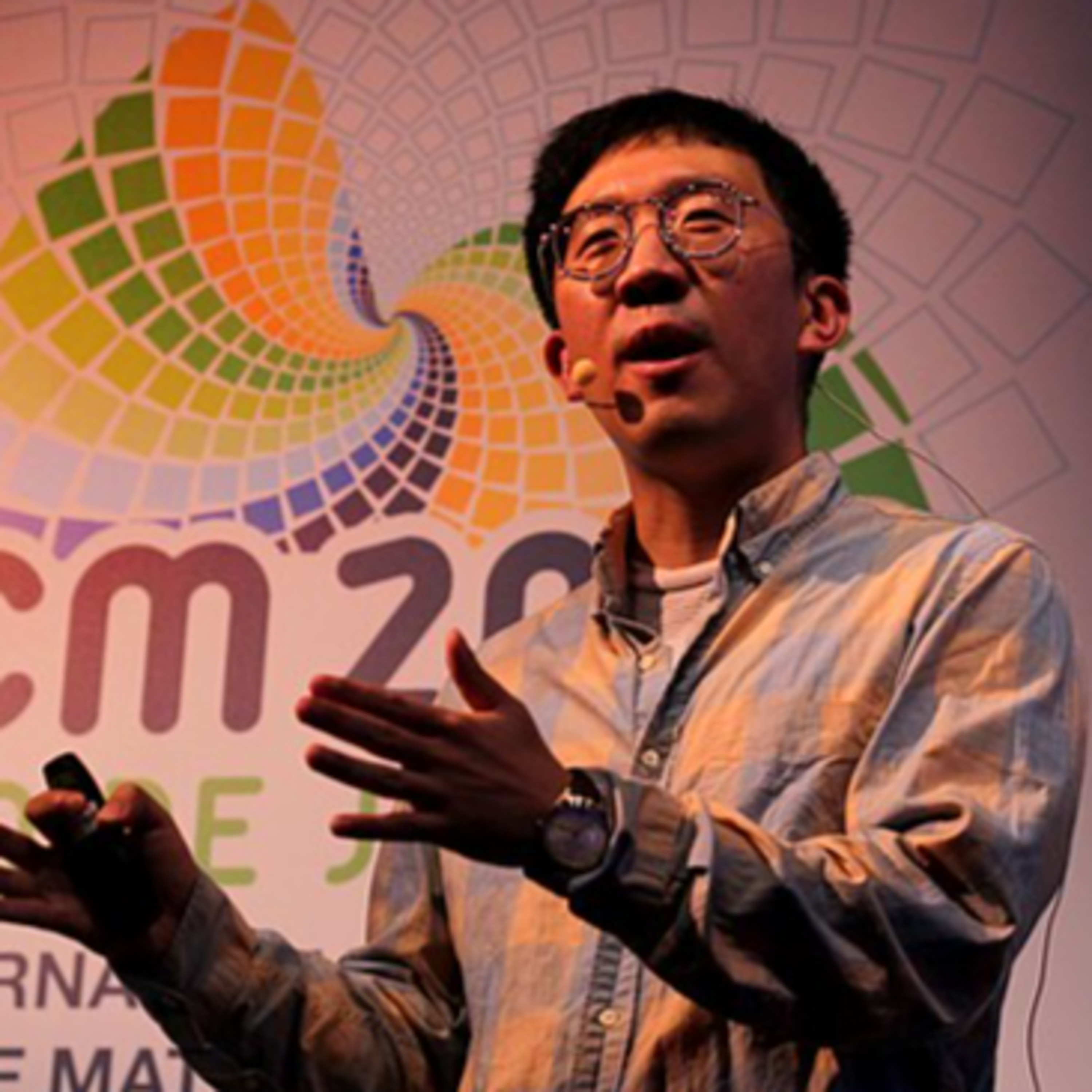
Million Dollar Problems of Mathematics: Complex Theories SimplifiedJune Huh I The Poet Who Cracked 50-Year-Old Mystery with… ShapesJune Huh wasn’t a math prodigy. He was a high school dropout who wanted to be a poet. But instead of writing verses, he found beauty in numbers—and ended up solving some of the hardest math problems in history. Huh cracked a 50-year-old puzzle in combinatorics, the math of patterns, arrangements, and hidden structures. His discoveries connect math to everything from AI to internet search engines, changing how we optimize systems and process information.This episode explores how an outsider rewrote the rules of mathematics, proving that you don’t have to be a child genius to cha...
2025-06-0411 min
Quarks to Cosmos: Advanced Physics in Everyday LanguageQuantum Mechanics: The Experiment That Broke RealityImagine firing a tiny particle at a barrier with two slits. It should go through one or the other, like a bullet. But in the double-slit experiment, something unbelievable happens. When no one is watching, particles act like waves, interfering with themselves. But the moment we try to observe which slit they go through, the interference pattern vanishes, and they behave like individual particles. It’s as if electrons know they’re being watched. This experiment isn’t just a physics puzzle—it’s a philosophical crisis. Does reality only exist when observed? How can something be in two pla...
2025-06-0314 min
Million Dollar Problems of Mathematics: Complex Theories SimplifiedHappy Ending Problem: Maths Puzzle That led to a WeddingWhat if geometry could guarantee a perfect shape—no matter how random your mess? Welcome to the world of the Happy Ending Problem, a mind-bending puzzle in combinatorial geometry that starts with just a handful of dots… and ends with a nearly century-old mystery still unsolved.In this short documentary, we explore a charming-sounding problem with serious mathematical bite. Originally sparked by a group of Hungarian mathematicians in the 1930s—and rumored to have sparked a romance too—it asks: how many randomly placed points does it take to guarantee a convex polygon of a given size? We know the...
2025-05-2810 min
Mysteries of Quantum Mechanics: SimplifiedTools of the Trade – Inside the Particle AcceleratorsHow do you find particles smaller than an atom? You smash stuff—really, really fast. In this final episode, we pull back the curtain on the mega-machines that made modern physics possible: particle accelerators. These are not your average lab tools—we’re talking rings the size of cities, magnets colder than space, and energies that recreate conditions moments after the Big Bang. From early cathode-ray tubes to the legendary Large Hadron Collider, we explore how accelerators evolved into the world’s most precise (and expensive) microscopes. We’ll break down how beams are bent, particles are steere...
2025-05-2717 min
Quarks to Cosmos: Advanced Physics in Everyday LanguageQuantum Mechanics: Bohr’s Atomic PlaygroundAtoms should be unstable. According to classical physics, electrons should spiral into the nucleus in a fraction of a second. Yet, atoms persist, and the universe exists. How? Danish physicist Niels Bohr had an idea: electrons don’t move freely—they stay in specific energy levels, jumping between them in sudden quantum leaps. His model finally explained why atoms are stable and why elements emit light at specific colors. But Bohr’s atomic model had its flaws—it only worked for hydrogen and still couldn’t explain why electrons don’t just drift between energy levels. This episode take...
2025-05-2710 min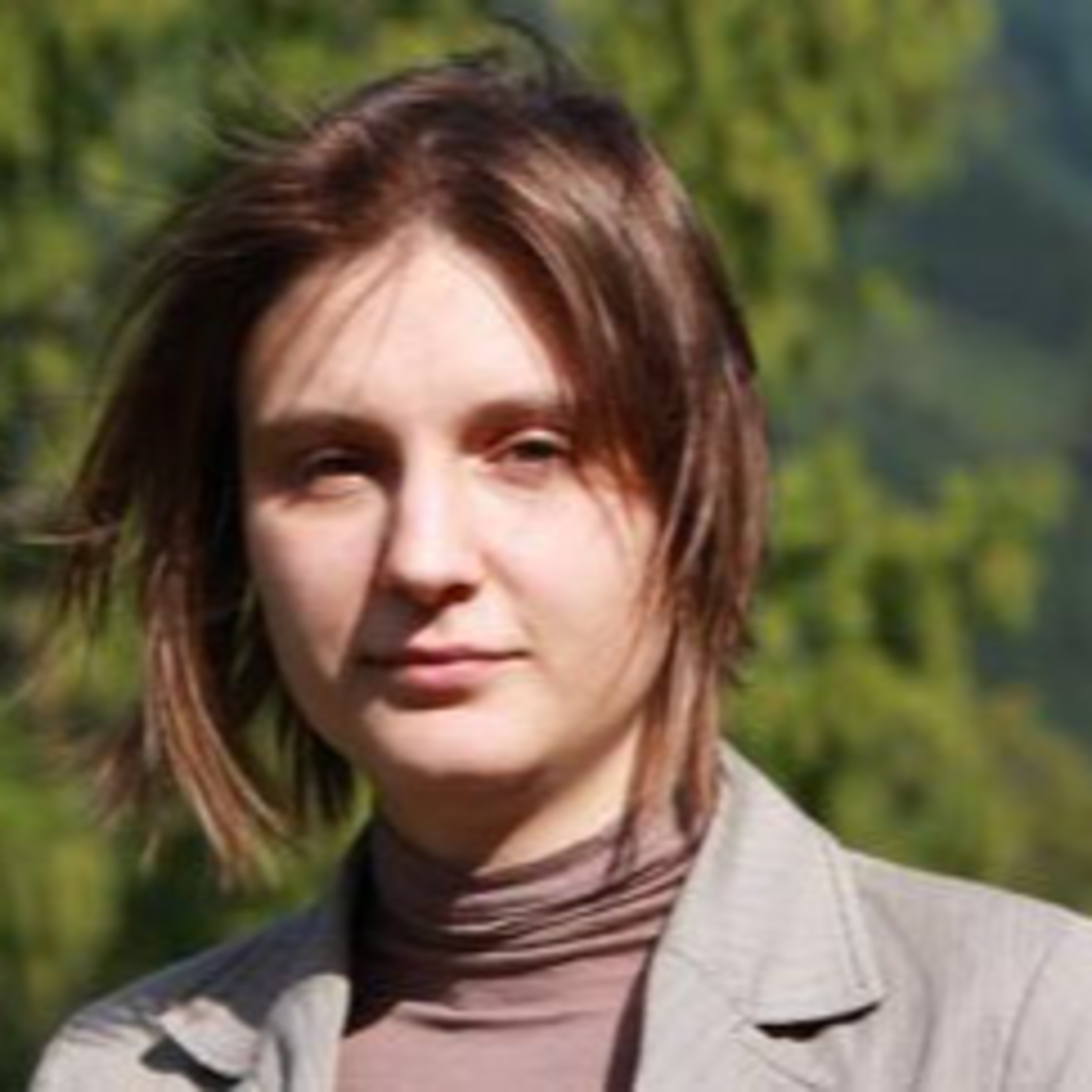
Million Dollar Problems of Mathematics: Complex Theories SimplifiedMaryna Viazovska I Fields Medal Winner who cracked 400 year old PuzzleEver wondered what stacking oranges has to do with data encryption? Turns out, everything.For over 400 years, mathematicians struggled to prove the best way to pack spheres in space. Even Isaac Newton had theories but no proof. Then, Maryna Viazovska cracked the code—solving one of math’s oldest mysteries in just a few elegant pages.Her breakthrough wasn’t just about stacking fruit—it has massive real-world impact. Her discoveries are revolutionizing data compression, improving security in cryptography, and even offering insights into quantum physics.This episode explores the genius behind her work, the mathematical beauty of high...
2025-05-2112 min
Mysteries of Quantum Mechanics: SimplifiedRise of the Heavy QuarksJust when physicists thought three quarks were enough—bam! Nature drops three more. In this episode, we follow the discovery of the charm, bottom, and top quarks—each heavier, rarer, and more mysterious than the last. These weren’t just random add-ons; they solved real puzzles. Charm explained why certain decays didn’t happen. Bottom revealed how matter might subtly cheat symmetry, possibly explaining why the universe isn’t made of antimatter. And top? It was the Godzilla of quarks—so massive and elusive, it took decades to find. We’ll go inside the “November Revolution” of 1974, witness game-chang...
2025-05-2014 min
Quarks to Cosmos: Advanced Physics in Everyday LanguageQuantum Mechanics: Planck’s Last Resort and The Birth of Quantum MechanicsIn 1900, Max Planck wasn’t trying to revolutionize physics—he was just trying to fix an equation. Instead, he stumbled upon one of the most shocking ideas in science: energy isn’t continuous—it comes in tiny, indivisible packets called quanta. This accidental discovery shattered classical physics and became the foundation of quantum mechanics. But even Planck himself didn’t believe it at first! Why did he resist his own idea? How did it solve the “ultraviolet catastrophe” that had physicists scratching their heads? And why does this discovery still shape everything from modern technology to the nature of reality?
2025-05-2011 min
Million Dollar Problems of Mathematics: Complex Theories SimplifiedThe Berry–Tabor Conjecture: When Classical Order Turns Quantum WeirdStep into the strange and electrifying world where chaos meets quantum mechanics. The Quantum Maze unpacks the Berry–Tabor Conjecture—a decades-old mystery that suggests the universe’s most “predictable” systems might secretly follow rules of pure randomness. Sound impossible? That’s exactly why scientists are still obsessed with it.Through immersive storytelling, this audio documentary explores the eerie parallels between classical order and quantum unpredictability. We trace how tidy, integrable systems—like a billiard ball rolling endlessly on a smooth table—might spawn quantum energy levels that behave like a cosmic game of chance. Along the way, you’ll uncover w...
2025-05-1412 min
Mysteries of Quantum Mechanics: SimplifiedFrom Zoo to Order – The Quark ModelImagine trying to organize hundreds of particles with names like “kaon,” “sigma,” and “omega”. That’s the mess physicists were in. But in this episode, order emerges from chaos. Enter Murray Gell-Mann (and independently, Yuval Ne’eman) with the "Eightfold Way," a genius method to sort the madness using symmetry. Turns out, many of these wild particles were part of bigger families—and that was the breakthrough. The real kicker? These particles weren’t fundamental at all. They were made of something smaller: quarks. Gell-Mann’s theory proposed just three types—up, down, and strange—were enough to build every...
2025-05-1318 min
Quarks to Cosmos: Advanced Physics in Everyday LanguageQuantum Mechanics: Crisis in Newtonian MechanicsFor centuries, physics was a world of certainty—planets orbited predictably, forces followed rules, and everything seemed explainable. But by the late 19th century, cracks started to form. The rules of classical mechanics couldn’t explain bizarre new discoveries: light behaving strangely, atoms emitting weird patterns, and a supposed “catastrophe” lurking in the ultraviolet spectrum. Scientists were puzzled— explore the moment when Newtonian Mechanics hit a wall, forcing physicists to rethink reality itself. From Newton’s perfect universe to the mysteries that broke it, this is the story of a scientific revolution in the making
2025-05-1316 min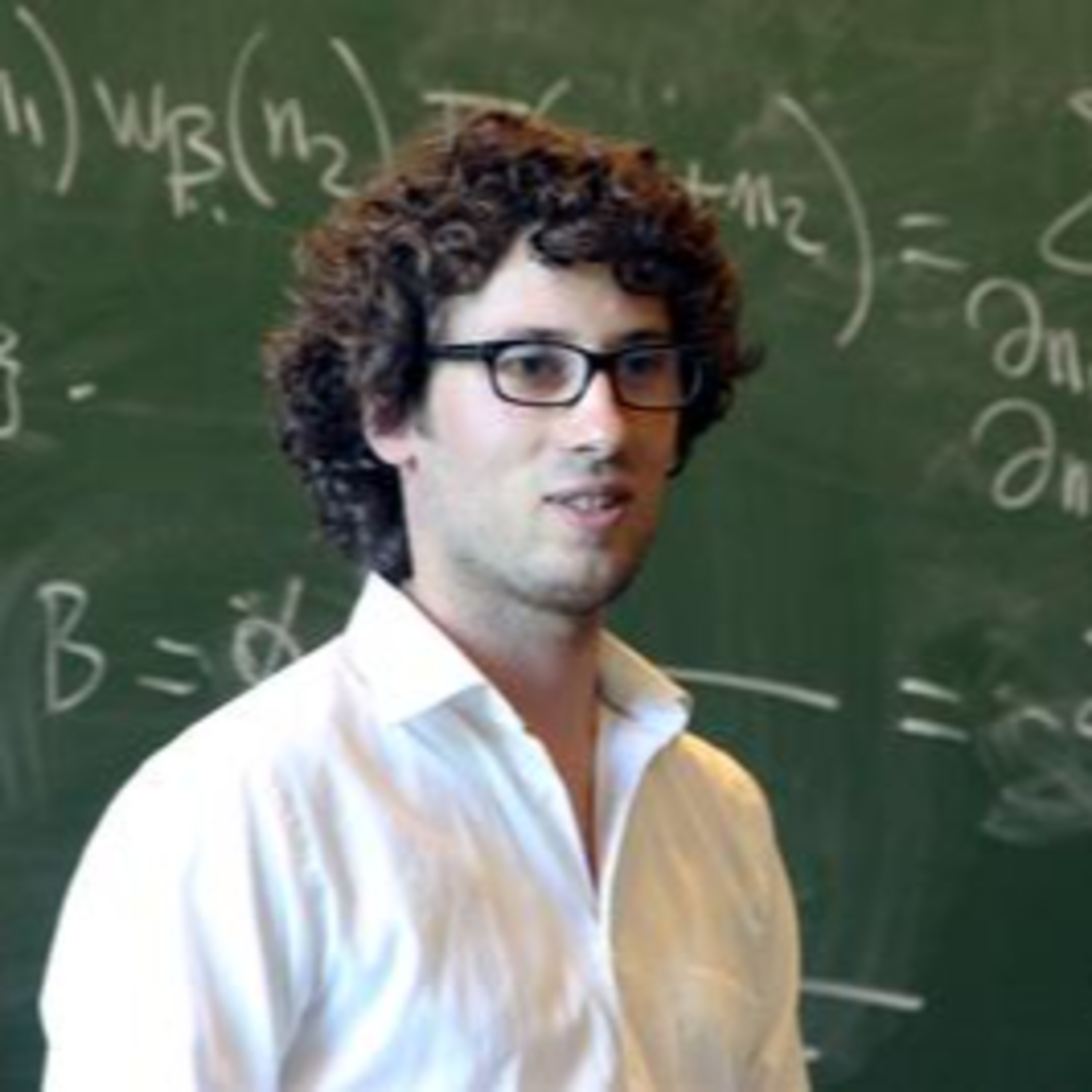
Million Dollar Problems of Mathematics: Complex Theories SimplifiedHugo Duminil-Copin I Fields Medal 2022 Winner who tames ChaosWhat do melting ice, wildfires, and pandemics have in common? They all follow hidden mathematical rules—rules that one man uncovered.Meet Hugo Duminil-Copin, the mathematician who cracked the code of randomness and phase transitions. His discoveries explain how tiny shifts cause massive changes—like water turning to ice or a single spark igniting a forest fire.His work isn’t just theoretical—it’s transforming how we predict disease outbreaks, design materials, and even understand financial crashes. From magnets to markets, his math reveals the tipping points that shape our world.Join us as we dive into the w...
2025-05-0711 min
Mysteries of Quantum Mechanics: SimplifiedThe Particle Zoo EmergesEver open your physics textbook and think, “Why are there suddenly 100 particles I’ve never heard of?” Welcome to the subatomic zoo. In this episode, we enter the post-WWII chaos where cosmic rays and particle accelerators started revealing all sorts of strange new creatures—muons, pions, kaons, lambdas, sigmas—each with their own weird lifespans, charges, and quirks. It was like Pokémon, but with quantum numbers. Some of these particles barely existed for a trillionth of a second. Others behaved so strangely they needed brand new quantum rules (hello, “strangeness”). Scientists were thrilled and frustrated—like trying to solve a...
2025-05-0616 min
Quarks to Cosmos: Advanced Physics in Everyday LanguageSpecial Relativity: Connecting to General RelativityIn this final episode, Jennifer and Inara explore how Einstein’s Theory of Special Relativity revolutionized physics, paving the way for General Relativity and a new understanding of gravity, time, and space.Special Relativity dismantled Newton’s absolute universe, showing that space and time are not separate but interwoven into a single entity—spacetime. It introduced time dilation, length contraction, and simultaneity, revealing that time flows differently for observers in motion. Yet, special relativity only worked in flat spacetime—it couldn’t explain gravity or acceleration.This limitation led Einstein to his greatest insight: General Relativity. Instead of Newton’s view of gr...
2025-05-0619 min
Mysteries of Quantum Mechanics: SimplifiedUnderstanding Antimatter: The Evil Twin of MatterImagine writing an equation so powerful it predicts an entire mirror world. That’s what Paul Dirac did in 1928. In this episode, we enter the high-speed realm where quantum mechanics crashes into Einstein’s special relativity—and out pops something totally unexpected: antimatter. Dirac’s equation didn’t just fix the math for fast-moving electrons, it also demanded that every particle has a shadow twin with the opposite charge. Antimatter. Sounds like sci-fi, right? Then a guy named Carl Anderson actually found the positron—the electron’s anti-twin—raining down from space. Spoiler: that confirmed the math. We explore...
2025-04-2916 min
Quarks to Cosmos: Advanced Physics in Everyday LanguageSpecial Relativity: Paradoxes of RelativityRelativity's Greatest Paradoxes: Breaking the Boundaries of Space and TimeIn this episode, Jennifer and Inara dive into some of relativity’s most mind-bending paradoxes—thought experiments that seem to defy logic, yet reveal the deeper truths of space, time, and motion.The journey begins with Bell’s Spaceship Paradox, first proposed by E. Dewan and M. Beran (1959) and later popularized by John Bell (1976). Two spaceships, connected by a rope, accelerate simultaneously. Does the rope break? Classical intuition says no, but relativity says yes—as the ships accelerate, length contraction creates tension, causing the rope to snap. This paradox challenges our unde...
2025-04-2922 min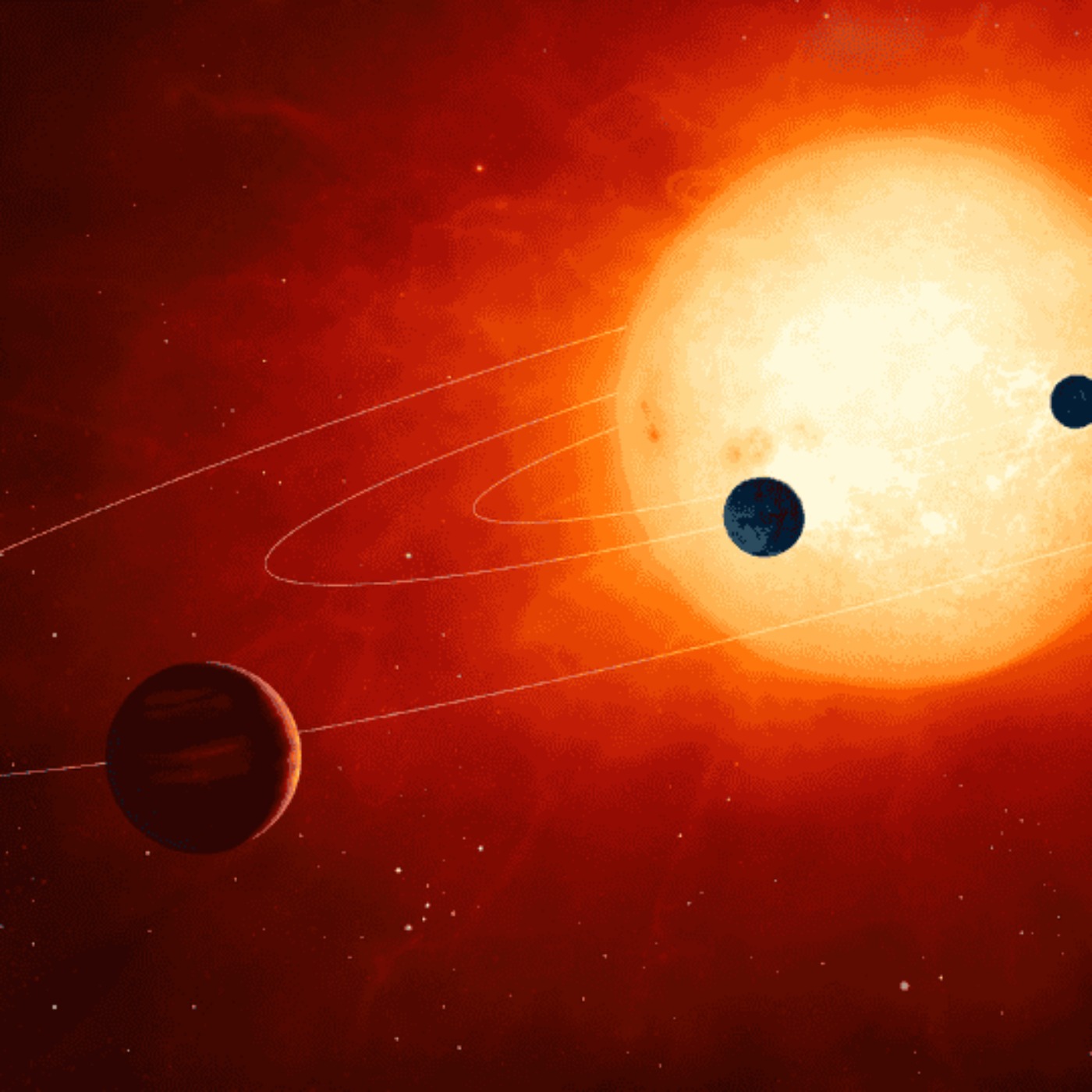
Mysteries of the UniverseHow Scientists achieved Ignition - The Biggest breakthrough in Nuclear FusionFor over a century, humanity has looked to the skies with awe, drawn to the brilliance of the Sun—a sphere of fire that sustains life on Earth by fusing hydrogen into helium in a process that releases unimaginable energy. The question that has captivated generations of scientists and dreamers alike is both simple and profound: What if we could bring the power of the Sun down to Earth?This documentary tells the sweeping story of our race to do exactly that—to replicate nuclear fusion, the process that powers the stars, and harness it as a clean, safe, and...
2025-04-2249 min
Mysteries of Quantum Mechanics: SimplifiedThe Quantum Leap – Wave-Particle DualityWhat do glowing ovens, spooky electrons, and a French prince have in common? They all helped shatter our understanding of reality. This episode unpacks the rise of quantum mechanics—aka the most successful, most confusing theory in all of science. It all starts with Max Planck's "oops" fix for a physics meltdown, which turns into the idea that energy comes in tiny, indivisible lumps. Then Einstein goes full rebel and claims light isn’t just a wave—it’s also a particle. Mind. Blown. But wait—it gets wilder. Louis de Broglie flips the script again by proposi...
2025-04-2213 min
Quarks to Cosmos: Advanced Physics in Everyday LanguageSpecial Relativity: Speed of Light and Its ParadoxesBeyond the Speed of Light: Causality, Cosmic Expansion, and the Limits of RelativityFor over a century, Einstein’s theory of relativity has stood as an unshakable pillar of modern physics, dictating that nothing can travel faster than light. But the universe holds surprises—galaxies receding faster than light, particles moving in strange ways, and quantum effects that defy intuition.In this mind-bending episode, Jennifer and Inara explore the true nature of the cosmic speed limit and how the fabric of reality bends to preserve causality. In relativity, causality ensures that effects always follow causes—but what happens if something moves...
2025-04-2224 min
Quarks to Cosmos: Advanced Physics in Everyday LanguageSpecial Relativity: E=mc², Unraveling Mass-Energy EquivalenceE=mc²: The Equation That Changed the UniverseIn 1905, Albert Einstein published a three-page paper that forever changed physics. His equation, E=mc², revealed that mass and energy are interchangeable, reshaping everything from nuclear power to cosmology.For centuries, mass and energy were seen as separate. Henri Poincaré suggested that light carried momentum, hinting at a connection, while Friedrich Hasenöhrl explored the idea that electromagnetic energy had mass. But it was Einstein who made the leap, showing that mass itself stores energy. His insight, built on the failure to detect the ether and the constancy of the speed of ligh...
2025-04-2222 min
Quarks to Cosmos: Advanced Physics in Everyday LanguageSpecial Relativity: Length Contraction and the Relativity of SimultaneityThis is Episode three of our six part series on the Theory of Special Relativity: SimplifiedImagine a world where reality shifts as you speed through space.A spacecraft, traveling near the speed of light, contracts in length—not an illusion, but a fundamental distortion of space itself. A 20-meter pole fits into a 15-meter barn, but only depending on who’s watching (Barn and Pole Paradox). These aren’t just Einstein's thought experiments or paradoxes. They’re the very fabric of the universe.Welcome to the mind-bending world of length contraction.In this thrilling exploration of Einstein’s Special Relativity...
2025-04-2223 min
Quarks to Cosmos: Advanced Physics in Everyday LanguageSpecial Relativity: How Time Dilation Works?This is Episode two of our six part series on the Theory of Special Relativity: SimplifiedImagine this: You board a spacecraft, accelerating to near the speed of light. Months pass for you—but back on Earth, decades slip away. When you return, your friends have aged, cities have changed, and history has unfolded… while for you, barely any time has passed.This isn’t a paradox. It’s reality. Welcome to the mind-bending phenomenon of time dilation.Einstein’s Special Relativity shattered everything we thought we knew. If the speed of light is constant, then space and time must adjust to...
2025-04-2224 min
Quarks to Cosmos: Advanced Physics in Everyday LanguageSpecial Relativity: The FoundationsThis is Episode 1 of our series on the Theory of Special Relativity: SimplifiedImagine a universe where time bends, stretches, and warps—where two people can experience reality in completely different ways. A world where the faster you move, the slower you age. A reality where the very nature of space and time is not absolute, but relative.This isn’t science fiction. This is Special Relativity.Join Jennifer, a theoretical physicist, and Inara, a journalist navigating the cosmos of physics, as they embark on a mind-bending journey through one of the most revolutionary theories in history—Einstein’s Special Relativi...
2025-04-2225 min
Adventures into Organic ChemistryYou’re Surrounded by Organic ChemistryYour morning routine is a chemistry experiment—you just don’t know it yet. From the molecules in your morning coffee to the chemistry of flavors, smells, and materials, this episode explores the surprising ways organic chemistry shapes our everyday lives.Why does fresh bread smell so good? What makes a perfume last? And how do colors in food, fabric, and even sunsets come down to molecular tricks? We break down the hidden chemistry in your kitchen, closet, and even the air you breathe—proving that science isn’t just in the lab—it’s everywhere
2025-04-1014 min
Adventures into Organic ChemistryAnalytical Techniques of Chemistry: How to See Molecules You Can’t See ?How do we study molecules that are too small to see? This episode dives into the high-tech world of spectroscopy—the ultimate detective toolkit for chemists. We uncover how scientists use infrared light, nuclear magnetism, and mass spectrometry to identify unknown substances, catch drug cheats, and even analyze ancient artifacts.How do forensic scientists track poison in crime investigations? What can chemistry reveal about lost civilizations? And how do we know what’s inside distant planets without ever going there?Get ready for a mind-blowing look at how we “see” t...
2025-04-0311 min
Adventures into Organic ChemistryResonance & Aromaticity - Why some molecules are incredibly stable?Some molecules refuse to sit still—they exist in multiple states at once. Welcome to the bizarre world of resonance, where electrons play quantum musical chairs, making molecules unusually stable. This episode breaks down the chemistry behind benzene (found in everything from gasoline to DNA), explains why some molecules refuse to react, and reveals how resonance powers perfumes, drugs, and even your body.Why do some molecules last forever while others break down instantly? And how does this molecular phenomenon shape everything from medicine to materials science? Prepare for some next-level chemistry—where molecules defy...
2025-03-2714 min
Mysteries of the UniverseNASA’s Search for Alien Worlds Is Revealing Strangest DiscoveriesWhat lies beyond the pale blue dot we call home? In the vastness of the cosmos, stars flicker like distant beacons, many hosting worlds we can only begin to imagine. The Exoplanet Odyssey invites you on a journey to explore the extraordinary—planets with molten surfaces, oceans deeper than any on Earth, and atmospheres that defy everything we thought we knew. These alien worlds challenge our understanding of life, the universe, and even ourselves.Discover the secrets of the TRAPPIST-1 system, where seven Earth-sized planets orbit a single star, three of them tantalizingly within the habitable zone. Marvel at...
2025-03-2722 min
Million Dollar Problems of Mathematics: Complex Theories SimplifiedPoincaré Conjecture: The only Millennium Prize Problems solved so farIn the final episode, we explore the Poincaré Conjecture—the only Millennium Prize Problem that has been solved so far.At its core, the conjecture asks a deceptively simple question: how can we tell if a shape in three-dimensional space is essentially a stretched-out version of a sphere? Though it sounds simple, this problem sits at the heart of topology, the study of shapes and spaces, and has profound implications for understanding the very structure of the universe.After stumping mathematicians for over a century, it was finally cracked in...
2025-03-2614 min
Mysteries of Quantum Mechanics: SimplifiedThe Quantum FutureQuantum mechanics isn’t just a theoretical playground—it’s changing everything. From the lasers in your phone to MRI scans that save lives, quantum physics powers our modern world. But the real breakthroughs are still ahead.Quantum computing could solve problems no classical computer ever could. Quantum teleportation is already happening in labs. Quantum cryptography could make hacking impossible. And physicists are still trying to merge quantum mechanics with gravity to uncover the deepest mysteries of the universe.What’s next for quantum science? Will we ever fully understa...
2025-03-2510 min
Mysteries of the UniverseTRAPPIST-1: Our best shot at finding a second earthVenture into the largest and most haunting structures in the universe—the cosmic voids. These vast, dark expanses, spanning billions of light-years, are nearly devoid of galaxies, defying our understanding of the cosmos.What forces shaped these immense regions of emptiness? Could they hold the secrets of dark energy, hidden dimensions, or even the fingerprints of advanced civilizations?In this episode, we unravel the enigma of voids, from the eerie Boötes Void to the mysterious Eridanus Supervoid. Discover how these silent abysses challenge everything we know about the uni...
2025-03-2121 min
Adventures into Organic ChemistryChirality: The Good, the Bad, and the ToxicImagine you pick up two identical-looking pills—one saves lives, the other is toxic. Welcome to the world of chirality, where molecular handedness determines everything. This episode explores how some molecules exist in left- and right-handed versions, why life only uses one type, and how a single flip can be the difference between medicine and poison.We uncover the tragic story of thalidomide, a drug disaster caused by chirality, and investigate why smell, taste, and even DNA depend on molecular symmetry.Could alien life use the opposite handedness of mo...
2025-03-2014 min
Million Dollar Problems of Mathematics: Complex Theories SimplifiedP vs NP : The most important unsolved problem in Computer ScienceIn this episode, we dive into P=NP, the most important unsolved problem in computer science—a question so profound it could reshape technology as we know it. At its core, P=NP asks: can problems that are easy to check also be easy to solve? From cracking encryption to solving puzzles that would normally take centuries of computation, a solution to P=NP could unlock unimaginable computational power—or chaos.The implications are staggering: a proof could revolutionize medicine, transportation, and artificial intelligence, or render our digital security obsolete overnight. It’s a proble...
2025-03-2018 min
Mysteries of Quantum Mechanics: SimplifiedBohr vs Einstein: The Battle of LegendsAlbert Einstein did not get along with quantum mechanics. He called it "spooky action at a distance" and spent decades trying to explain the fallacies. But Niels Bohr fought back, defending the Copenhagen interpretation, which claimed that quantum reality doesn’t exist until we measure it. The Bohr-Einstein debates were some of the most legendary arguments in science, filled with clever thought experiments, deep philosophy, and a battle over the nature of reality itself. Did Bohr really defeat Einstein? Or was Einstein’s skepticism a clue that quantum mechanics is still incomplete? This epis...
2025-03-1814 min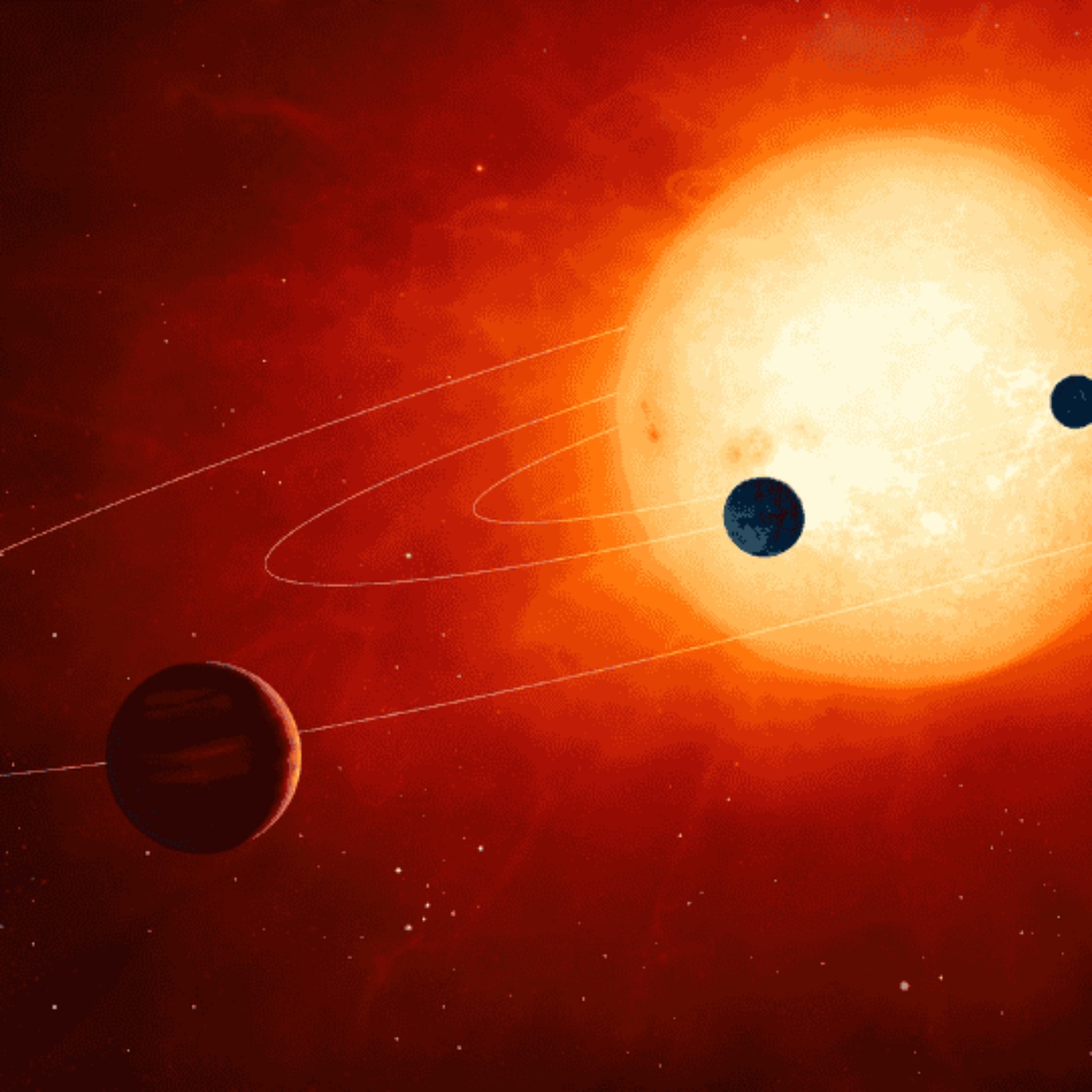
Mysteries of the UniverseCosmic Voids: What lies in the enormous empty spaces ?Venture into the largest and most haunting structures in the universe—the cosmic voids. These vast, dark expanses, spanning billions of light-years, are nearly devoid of galaxies, defying our understanding of the cosmos. What forces shaped these immense regions of emptiness? Could they hold the secrets of dark energy, hidden dimensions, or even the fingerprints of advanced civilizations? In this episode, we unravel the enigma of voids, from the eerie Boötes Void to the mysterious Eridanus Supervoid. Discover how these silent abysses challenge everything we know about the universe and reveal the pro...
2025-03-1416 min
Adventures into Organic ChemistryFunctional Groups: The Building Blocks of Everything You Love or Hate?The answer lies in functional groups—the chemical signatures that give molecules their superpowers. In this episode, we decode how these tiny atomic clusters control everything from smell and taste to how medicines work. Why does one molecule smell like fresh fruit while its nearly identical twin is toxic? How does chemistry determine whether something is sweet or sour? And how do functional groups help design the next generation of life-saving drugs? From the kitchen to the pharmacy, this episode uncovers the hidden chemical tags that shape your world in ways you never im...
2025-03-1313 min
Adventures into Organic ChemistryWhy Molecule Shape Changes Everything?What if we told you that the shape of a molecule can determine whether a drug saves a life or kills? This episode explores how molecular structure dictates everything—smell, taste, medicine, and materials. Using the bizarre science of molecular geometry, we uncover why some molecules bend while others stay rigid, how structure determines strength (looking at you, diamond vs. graphite), and why DNA is a twisted double helix. We also reveal how molecular shape controls the flavors in your favorite foods and even the smell of rain. Can the shape of a molecule really change it...
2025-03-1318 min
Adventures into Organic ChemistryWhy Carbon is the King of ChemistryWhat makes carbon the ultimate shape-shifter of the periodic table? This episode reveals why carbon is the backbone of life, the engine of industry, and the reason you exist. From the diamonds in your jewelry to the fuel in your car, carbon’s versatility is unmatched. But what makes it so special? We dive into the element’s unique ability to form millions of molecules, its surprising role in everything from food to technology, and its dark side—pollution and climate change. Why does carbon switch between coal, graphite, and diamonds? Can silicon replac...
2025-03-1318 min
Adventures into Organic ChemistryThe Origins of Organic Chemistry: How It All BeganBefore chemistry was science, it was alchemy. Ancient alchemists searched for the Philosopher’s Stone, trying to turn lead into gold. What they actually discovered was the foundation of modern chemistry. This episode uncovers how chemistry evolved from mystical potions to molecular precision. We’ll meet the scientists who shattered myths—like Friedrich Wöhler, who accidentally proved that life’s molecules could be made in a lab, forever changing science. Why do carbon-based molecules rule the universe? What makes organic chemistry so special? And how did a single experiment rewrite the rules of science? Fro...
2025-03-1318 min
Million Dollar Problems of Mathematics: Complex Theories SimplifiedHodge Conjecture: The Grand Puzzle of Shapes, Spaces, and Higher DimensionsIn this episode, we tackle the Hodge Conjecture—a grand mathematical puzzle that dares to explain the hidden structure of shapes, spaces, and higher dimensions. At its heart, the Hodge Conjecture is about understanding how complicated geometric shapes can be broken into simpler, more fundamental building blocks. Solving this problem could illuminate the very fabric of geometry, with profound implications for fields like string theory, topology, and theoretical physics. It’s a mystery so deep that it has challenged some of the greatest mathematical minds. Join us as we unravel this enigma and expl...
2025-03-1216 min
Mysteries of Quantum Mechanics: SimplifiedWhy Precision is Impossible in Quantum PhysicsIn the classical world, you can measure where something is and how fast it’s moving with perfect accuracy. But in the quantum world? Not a chance. In 1927, Werner Heisenberg proposed something shocking: the more precisely you measure a particle’s position, the less you can know about its momentum, and vice versa. This wasn’t a limitation of our tools—it was a fundamental property of nature. The Uncertainty Principle shattered the idea of a predictable universe, proving that at the smallest scales, reality is a game of probabilities, not certainties. ...
2025-03-1111 min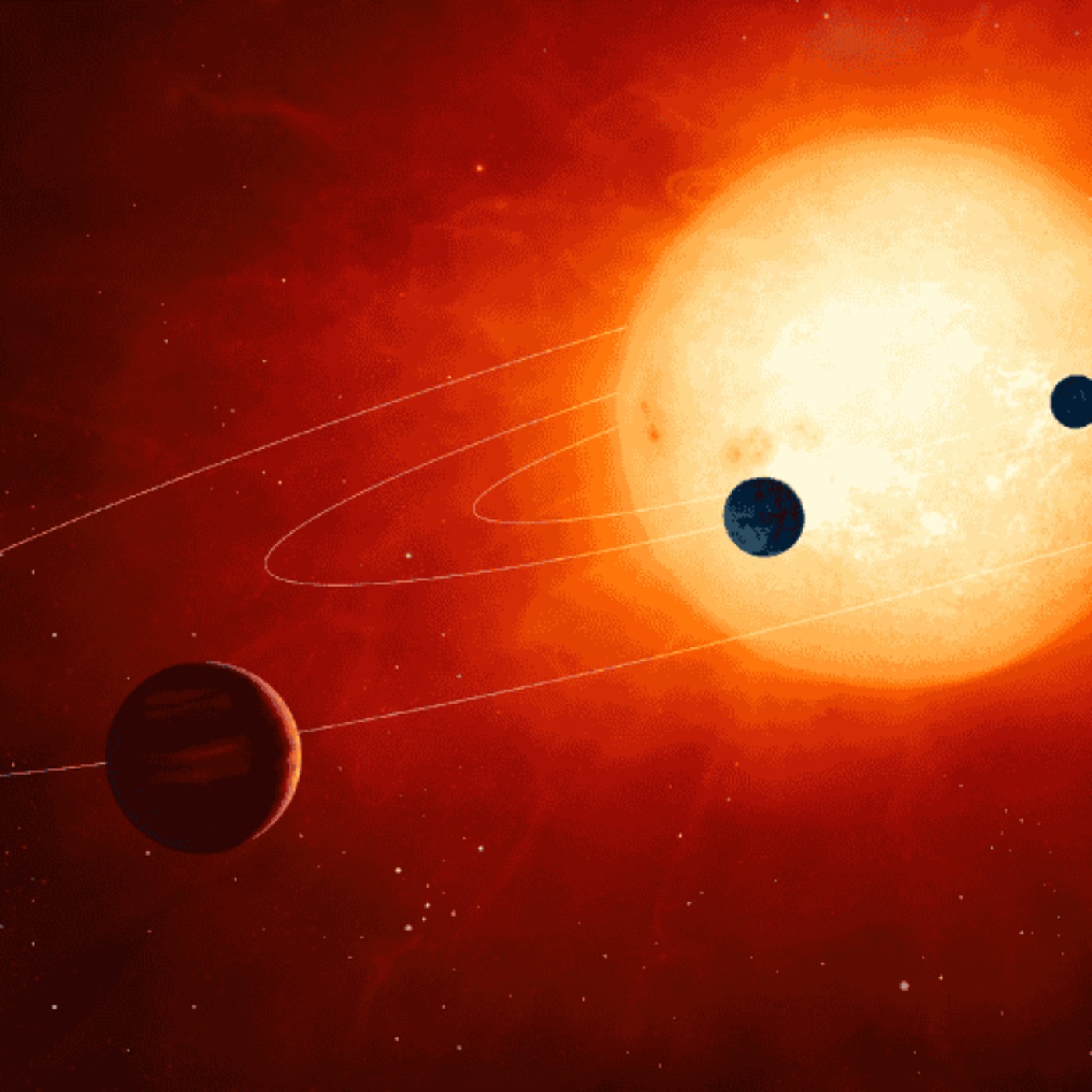
Mysteries of the UniverseCould there be a giant planet hiding in the Solar System?Beyond Neptune’s icy domain lies a shadowy enigma—Planet Nine, a giant world that may lurk at the edges of our solar system. Its existence is betrayed by the strange, clustered orbits of distant objects, hinting at a massive, unseen force. Could this hidden planet be the remnant of cosmic chaos, or a rogue world captured from another star? In this episode, we unravel the clues, explore its possible origins, and examine the revolutionary technologies searching for this elusive giant. Planet Nine’s discovery could rewrite the story of our solar system—and chal...
2025-03-0720 min
Million Dollar Problems of Mathematics: Complex Theories SimplifiedNavier-Stokes EquationsIn this episode, we dive into the Navier-Stokes Equations, the mathematical key to understanding the chaos of air, water, and motion. These equations govern the flow of fluids—from ocean currents to turbulence in the air we breathe. But there’s a catch: proving that these equations always work without spiraling into chaos remains an unsolved mystery. Even Hollywood couldn’t resist its allure. In the movie Gifted, the Navier-Stokes problem becomes the obsession of a mathematical prodigy, symbolizing the ultimate intellectual challenge. Solving it could transform everything from climate science to aerospace engineering. Join...
2025-03-0514 min
Mysteries of Quantum Mechanics: SimplifiedThe Experiment That Broke RealityImagine firing a tiny particle at a barrier with two slits. It should go through one or the other, like a bullet. But in the double-slit experiment, something unbelievable happens. When no one is watching, particles act like waves, interfering with themselves. But the moment we try to observe which slit they go through, the interference pattern vanishes, and they behave like individual particles. It’s as if electrons know they’re being watched. This experiment isn’t just a physics puzzle—it’s a philosophical crisis. Does reality only exist when observed? How can so...
2025-03-0415 min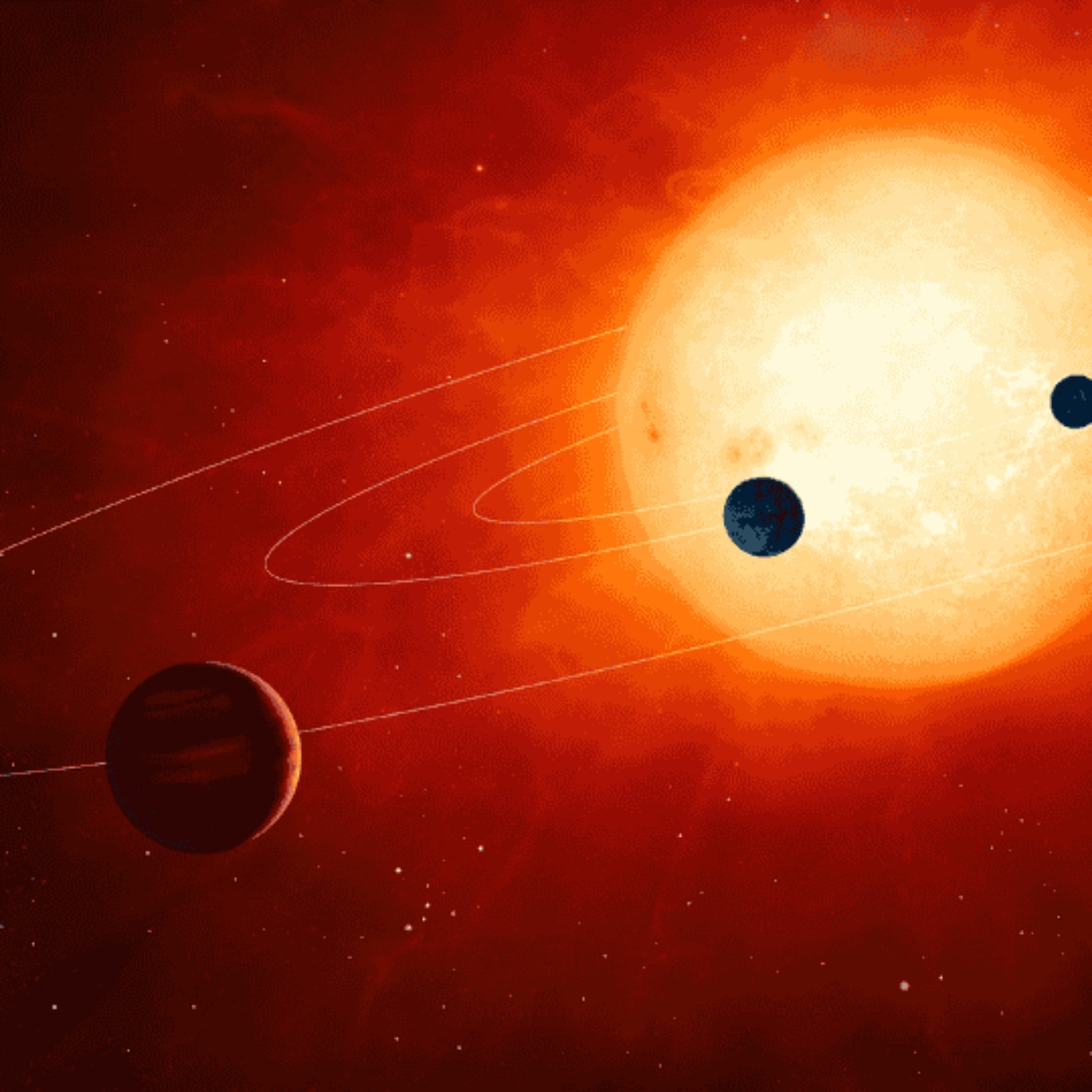
Mysteries of the UniverseTabby's Star: Could there be alien megastructures covering this star ?Deep in the constellation Cygnus lies a star that defies what we know such stars. Tabby’s Star flickers in ways that seem impossible—plunging in brightness by up to 22% without rhyme or reason. Could this cosmic enigma be hiding shattered planets, swarms of comets, or something even more extraordinary, like an alien megastructure? In this episode, we unravel the strange light curves, elusive infrared signals, and tantalizing theories surrounding the star that breaks the rules of astrophysics. Is it a natural wonder, or a beacon of intelligent life? Hosted on A...
2025-02-2821 min
Million Dollar Problems of Mathematics: Complex Theories SimplifiedYang-Mills & The Mass GapExplore the Yang-Mills theory and the Mass Gap—a problem that has haunted mathematicians and physicists for decades. At the intersection of pure math and quantum physics, this enigma underpins our understanding of the universe's fundamental forces. Yang-Mills theory describes the behavior of particles like quarks and gluons, the building blocks of matter, but here’s the twist: the theory predicts they should have mass, yet no one has been able to prove why—or how. This "mass gap" is a mathematical black hole, critical to modern physics but maddeningly unsolvable. Solving it could...
2025-02-2617 min
Mysteries of Quantum Mechanics: SimplifiedBohr’s Atomic PlaygroundAtoms should be unstable. According to classical physics, electrons should spiral into the nucleus in a fraction of a second. Yet, atoms persist, and the universe exists. How? Danish physicist Niels Bohr had an idea: electrons don’t move freely—they stay in specific energy levels, jumping between them in sudden quantum leaps. His model finally explained why atoms are stable and why elements emit light at specific colors. But Bohr’s atomic model had its flaws—it only worked for hydrogen and still couldn’t explain why electrons don’t just drift between energy levels. T...
2025-02-2511 min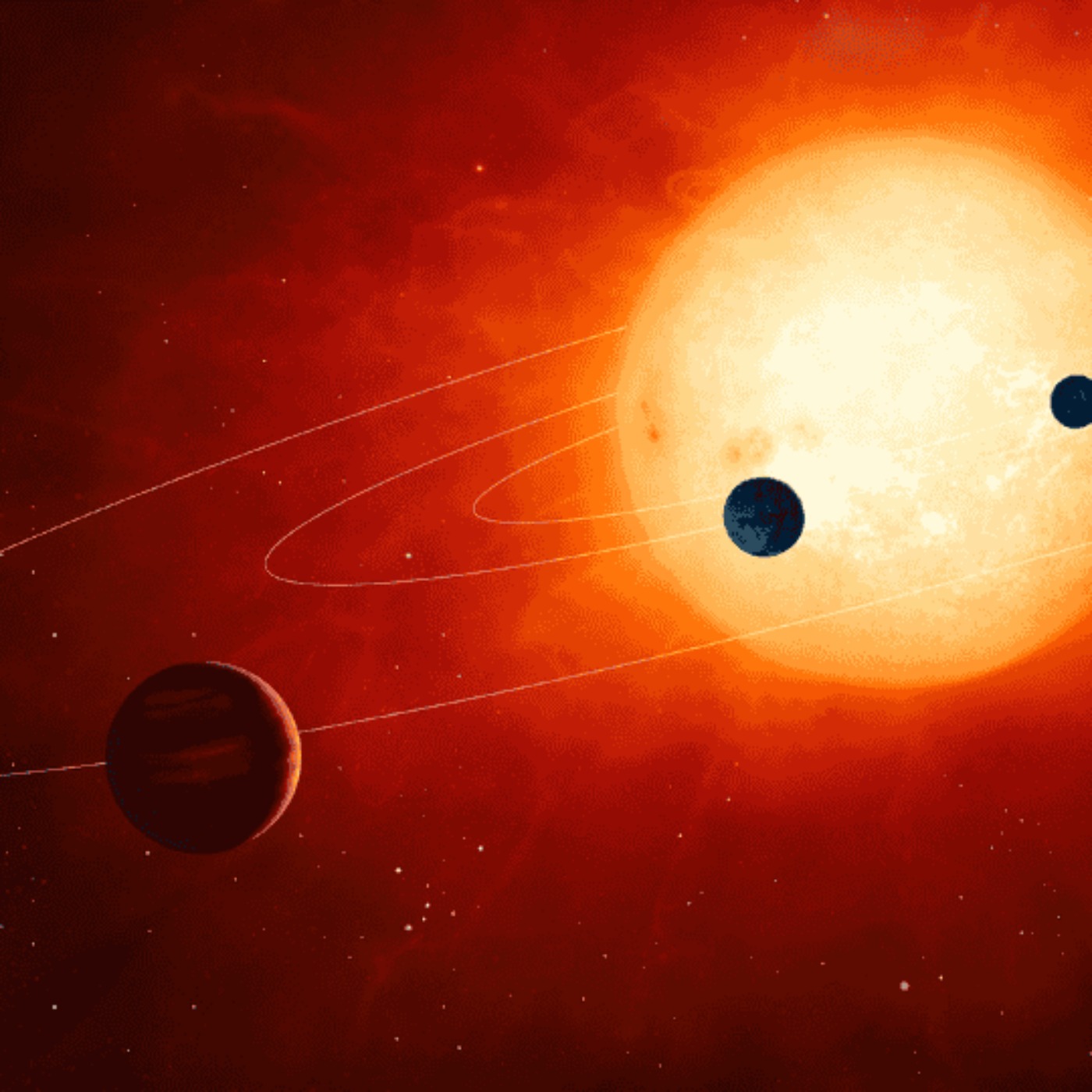
Mysteries of the UniverseThe coldest place in Universe: The Boomerang NebulaDeep in the constellation Centaurus lies a place colder than the cosmic microwave background itself—a realm so frigid it defies the very fabric of thermodynamics. This is the Boomerang Nebula, the coldest known object in the universe, where temperatures plunge to just 1 Kelvin above absolute zero. But how can a dying star create such a cosmic freezer? From rapid gas expansion to mysterious magnetic forces, this episode unravels the secrets behind Nebula’s bone-chilling phenomenon. Hosted on Acast. See acast.com/privacy for more information.
2025-02-2112 min
Million Dollar Problems of Mathematics: Complex Theories SimplifiedBirch and Swinnerton-Dyer conjectureIn this episode, we uncover the Birch and Swinnerton-Dyer Conjecture—an enigma in mathematics so complex it’s often called “the most difficult problem you’ve never heard of.” At its heart lies a question about elliptic curves, abstract shapes with applications ranging from cryptography to string theory. Solving it could redefine how we approach the boundaries of number theory and computation. Join us as we break down the mystery, meet the minds tackling it, and explore why it holds the key to understanding the infinity. Hosted on Acast. See acast.com/p...
2025-02-1914 min
Mysteries of Quantum Mechanics: SimplifiedPlanck’s Last Resort: The Birth of Quantum MechanicsIn 1900, Max Planck wasn’t trying to revolutionize physics—he was just trying to fix an equation. Instead, he stumbled upon one of the most shocking ideas in science: energy isn’t continuous—it comes in tiny, indivisible packets called quanta. This accidental discovery shattered classical physics and became the foundation of quantum mechanics. But even Planck himself didn’t believe it at first! Why did he resist his own idea? How did it solve the “ultraviolet catastrophe” that had physicists scratching their heads? And why does this discovery still shape everything from modern technology to the nature of...
2025-02-1812 min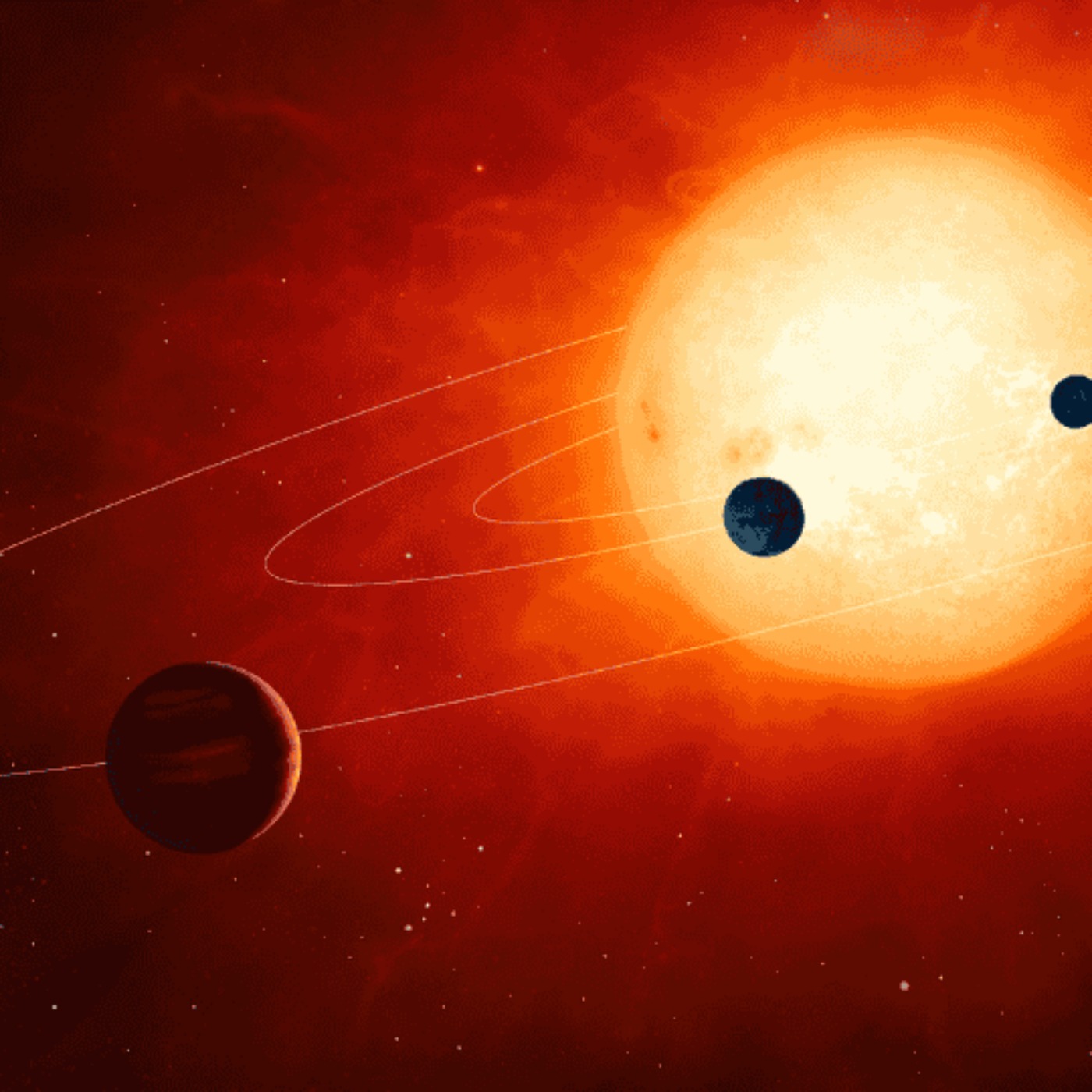
Mysteries of the UniverseBrightest Object in the Universe: The Fury of Quasar 3C273Amidst the silent vastness of the universe lies 3C 273—a quasar brighter than a trillion suns, radiating its fury from 2.4 billion light-years away. What unimaginable forces power this celestial inferno? How does a single object outshine galaxies? In this episode, we delve into the heart of this cosmic enigma, exploring the supermassive black hole at its core, its swirling accretion disk, and jets of plasma that stretch across intergalactic space. Discover how 3C 273 shattered our understanding of the cosmos, revealing the mysteries of quasars, galaxy formation, and the universe’s turbulent infancy. Hosted on A...
2025-02-1619 min
Mysteries of Quantum Mechanics: SimplifiedThe Moment Physics Broke: Crisis in Newtonian MechanicsFor centuries, physics was a world of certainty—planets orbited predictably, forces followed rules, and everything seemed explainable. But by the late 19th century, cracks started to form. The rules of classical mechanics couldn’t explain bizarre new discoveries: light behaving strangely, atoms emitting weird patterns, and a supposed “catastrophe” lurking in the ultraviolet spectrum. Scientists were puzzled— explore the moment when Newtonian Mechanics hit a wall, forcing physicists to rethink reality itself. From Newton’s perfect universe to the mysteries that broke it, this is the story of a scientific revolution in the making Hos...
2025-02-1616 min
Million Dollar Problems of Mathematics: Complex Theories SimplifiedThe Riemann HypothesisThis episode dives into one of the most elusive mysteries in mathematics: the Riemann Hypothesis. First proposed by Bernhard Riemann in 1859, it’s a conjecture that connects the primes—those fundamental building blocks of numbers—to a hidden rhythm in the infinite expanse of mathematics. Cracking it is more than implications for number theory; it’s about unlocking the structure of the universe itself. From cryptography to quantum physics, the implications ripple through every corner of science. In this journey, we’ll simplify the Hypothesis, peeling back the layers of abstraction to reveal the mesmer...
2025-02-1616 min